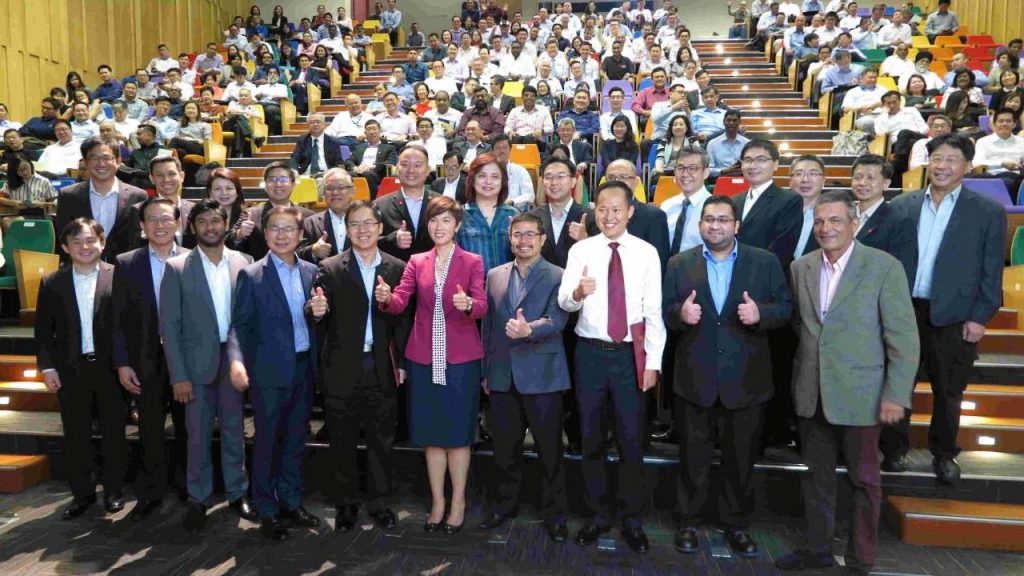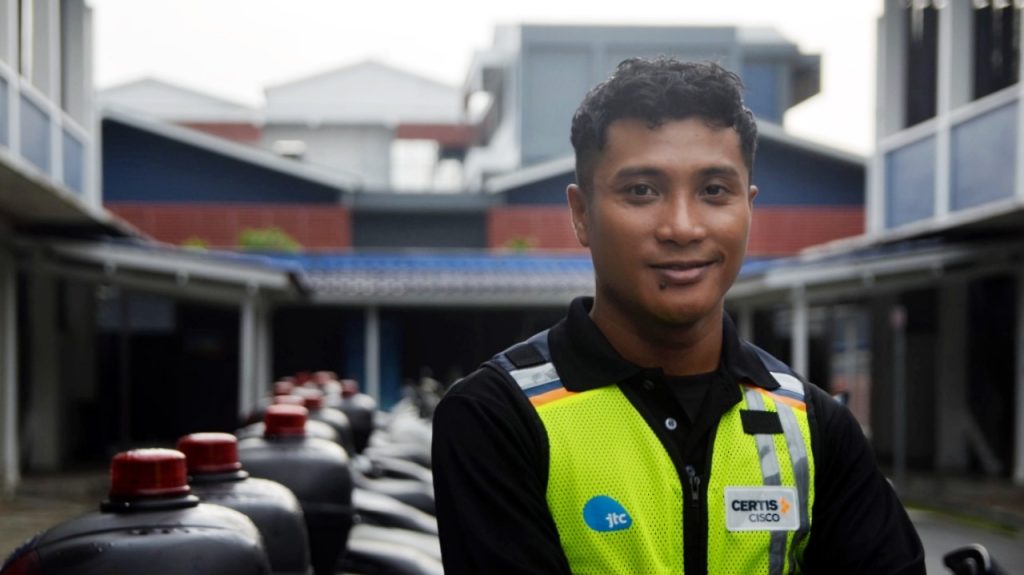In an increasingly uncertain world, where the value of security cannot be denied, the reluctance of many security buyers to change the way they tender for security contracts makes it difficult for the industry to transform.
As Singapore’s economy continues to grow, the demand for security solutions across commercial, industrial, and residential properties will only increase.
However, manpower growth in the security industry has been catching up with the demand in recent years. Long hours, vague career pathways, and the abusive nature of the security industry have all contributed to the stifled manpower growth.
While tripartite partners have busied themselves over the last decade trying to uplift the industry, change can only happen if service buyers are on board to help the industry evolve.
The Importance of the Security Industry
The security industry is a cornerstone in Singapore’s economic transformation journey.
Our nation’s global reputation as a haven has attracted international talent and corporations that have bolstered the country’s economic development.
As such, the role of our security industry goes beyond safeguarding people’s homes and businesses. It also fosters an environment conducive to business growth and innovation.
Furthermore, despite the shortage of workers joining the sector, the security industry still provides a sizeable portion of our local workforce with jobs.
Today, Singapore’s security industry comprises 280 companies employing nearly 50,000 workers.
Efforts to Transform the Industry
For years, tripartite partners have been working to uplift the private security industry and make it a viable career for workers.
In September 2013, the Security Tripartite Cluster (STC) – consisting of representatives from industry associations, employers, service buyers, unions and government agencies – was formed and tasked to develop a Progressive Wage Model (PWM) and to raise the productivity and professional standards of the security industry.
Three years later, the security PWM was implemented, mandating that security officers – at different stages in their career – pass specified Singapore Workforce Skills Qualifications (WSQ) modules and that security companies pay wages that commensurate or exceed the levels set in the PWM.
A wage schedule was also drawn up to see the basic wages of security officers across different ranks and skills proficiency rise annually. For example, the basic salary of a security officer today is $1,650. By 2024, the sum is set to increase to $2,650 and up to $3,530 by 2028.
However, the industry continued to face a tight supply of manpower. Moreover, an upskilled workforce was meaningless if companies did not transform to deliver integrated security solutions.

So, to ensure the development of a technologically advanced and competitive security industry, tripartite partners launched the Security Industry Transformation Map (ITM) in 2018.
The Security ITM identified four key strategies to help drive industry transformation, two of which were the adoption of technology and innovation and the transition towards ‘best sourcing’ practices.
To help train workers with technology adoption, NTUC announced its Company Training Committee (CTC) initiative in 2019 to help identify the areas of training and skills workers need to keep up with industry transformation.
More recently, Finance Minister Lawrence Wong also announced in his Budget 2022 statement that the Government would give a leg up to NTUC’s CTC initiative by setting aside $100 million to aid companies in their transformation efforts.
To help service buyers transition to best sourcing practices, the Ministry of Home Affairs (MHA) – the sector lead for transforming the security industry – refreshed the Security ITM in November 2022.
The refreshed ITM, or Security ITM 2025, sought to accelerate the adoption of outcome-based contracts, stating that it will be a critical enabler of industry transformation and technology adoption.
Additionally, MHA also developed a detailed guide to help buyers move away from headcount-based contracts and towards outcome-based contracts.
Despite all the efforts, the transformation has not been as swift as anticipated.

Transformation Setbacks
Probably the biggest hurdle to transforming the industry lies with service buyers’ reluctance to invest in technology and to move away from headcount-based contracting.
This was something the then Second Minister for Home Affairs Josephine Teo addressed in her opening speech during the launch of the Security ITM in 2018.
She noted that many service buyers did not have the practice of conducting risk assessments before calling for a tender, typically reusing the same tender specifications from previous years and assessing security providers based on cost rather than the value of the services they can offer.
“Kind of like the idea that if it isn’t broken, why fix it?” she added.
Five years later, while many commercial sites have begun to adopt outcome-based contracts, most residential properties still largely use headcount-based contracts when calling for security tenders.
Union of Security Employees (USE) President Ardi Amir shared that it is partly due to the nature of private condominium management committees and the higher upfront cost of adopting outcome-based contracts.
The management committees are often re-elected every year, making it challenging for the committee in office to call for longer security tenders. With short, one- or two-year contracts, security providers stand to lose a significant investment should they propose technology-based solutions and not renew their contracts.
“The adoption rate for outcome-based contracts is still quite low; only the government sector is pushing hard for it, whereas the private sector – especially the industrial and residential – are not moving as much as we expect,” Mr Ardi shared.
Security agencies who try to propose more outcome-based solutions often lose out during the tender bidding process due to price, thus forcing them to revert to the old headcount-based proposals to secure the contracts.

The Need to Transform
There is an urgent need for the security industry to transform.
For one, security threats are evolving, and workers need to be able to leverage technology to identify, report or de-escalate these situations.
Security buyers also expect more from security officers today. As first responders, security officers are crucial in assessing hazardous situations such as fire, electrical faults, or any other facility-borne issues. Identifying these issues accurately can greatly improve service recovery, provided officers are properly trained to do so.
Moreover, there is a need to move towards more effective and innovative security solutions. USE Executive Secretary Steve Tan opined that the widely used headcount-based method of calling for tenders can lead to operational weaknesses.
He said: “Headcount-based contracts are bought based on a predetermined headcount and price of those headcounts. The predetermined headcounts, if wrongly determined in the first place, will lead to sites not being properly secured … Buyers will usually opt for the bare minimum and as a result, the officers will have to handle a host of [other] duties, and very often, there will be gaps on the ground.”
Mr Ardi added that with the scheduled wage increases brought about by the PWM, service buyers who choose to stick to headcount-based contracts will either end up paying a lot more for the same number of security officers they have today or end up with compromised security solutions they choose to reduce the number of officers they have on site.
“The PWM has already been planned out to 2028, and next year will be the biggest jump, whereby the basic gross pay will become $2,650 [currently $1,650 in 2023]. So, if every year the cost keeps rising, and you don’t change and ‘marry’ the manpower and technology, the cost to service buyers is going to skyrocket,” he said.
While there is still a sizeable workforce in the market, its growth will not outpace the demand if younger or potential workers do not see the security industry as a viable career option.

Create Not Jobs, But Careers
Certis Senior Security Officer Bahtiar Salleh Salim, 32, is a testament to how companies that choose to transform can help workers make a career within the security industry.
He initially joined the industry on a part-time basis, handling ad-hoc jobs such as events and live shows. After joining Certis, he saw the potential to groom and develop his career in the industry with the company on a full-time basis and he has not looked back since.
“I was interested to know more about security – how to protect people, property, etcetera. There is a lot of focus on technology [at Certis] in training as well as in operations, and I felt that this would allow me to ‘deep dive’ into the role,” he said.
After upgrading himself with the company over the last few years, Bahtiar is part of a five-person roving and quick response team, where he patrols a precinct on a motorbike. He also supervises the four other security officers assigned to this team.
He continues to look forward to developing himself personally and professionally with Certis. He shared he hopes to move on to security compliance, where he would get to review the performance of other security officers onsite and rectify any gaps in their security measures.
Transformation is not just for the Big Players
Transformation is not just limited to larger security firms such as Certis but smaller agencies as well.
To help security buyers and providers embark on this journey, USE has readied tools to make the transition less daunting.
Mr Tan said: “USE offers our unionised agencies funding support through the CTC grant for procurement of solutions. We provide consultancy services as we have outcome-based contract consultants on retainers. We can link manpower agencies with security tech providers. We also conduct masterclasses for buyers who do not understand outcome-based contracts, and we host industry seminars to help build awareness and know-how.
“The most interesting thing is we join our agencies in sales pitches to their buyers by explaining how the outcome-based contract process works and how costs will continue to build exponentially if they rely purely on manpower.”
With the CTC grant and the adoption of outcome-based contracts, USE has helped security buyers and agencies deploy optimised tech- and manpower-based solutions at more than 40 sites.
A Change of Mindset
Ultimately, we need security buyers to shift their mindset to prioritise effectiveness over traditional methods of calling for tender.
With this shift, security providers can focus on achieving desired safety results rather than just fulfilling contractual obligations.
The switch towards outcome-based contracts will help promote innovation, tailored solutions, and a more holistic security strategy.
It will also help professionalise our security workforce, making it a sustainable career of choice for our local workforce.

